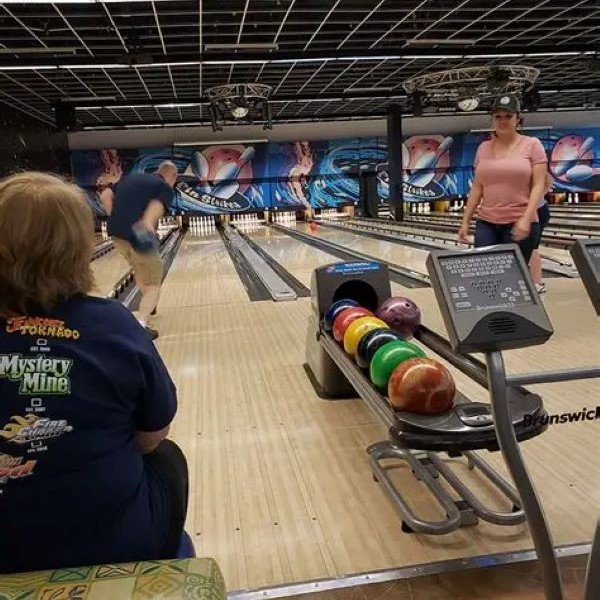Greek church bowling has become a popular way for parishioners to connect outside of Sunday services. This social event blends recreation with fellowship, creating a relaxed environment for people of all ages. Instead of formal gatherings, families, youth groups, and seniors enjoy friendly competition at local bowling alleys.
Moreover, greek church bowling nights are usually organized by church councils or youth ministries. They take place once a month or during special seasons like Lent or summer. These events encourage attendance beyond religious obligations.
In addition, bowling offers an inclusive activity. You don’t need special skills or equipment. Most alleys provide rental shoes and basic gear. This makes it easy for children, teens, and older adults to join.
The atmosphere is warm and welcoming. Teams often represent different church departments. Choir members may compete against altar servers. Laughter and cheers fill the lanes.
Many events include snacks or light meals. Some churches host pizza parties afterward. Others use the time for announcements and small group talks.
These outings also help newcomers feel welcome. Visitors meet members in a casual setting. This builds trust and connection faster than formal introductions.
Youth especially benefit. They form friendships rooted in shared faith. At the same time, they stay active and engaged.
Therefore, greek church bowling is more than a game. It strengthens bonds and supports spiritual growth.
 The Origins of Greek Church Events
The Origins of Greek Church Events
Greek church bowling started as a youth outreach effort. In the 1980s, many parishes noticed declining youth attendance. Leaders wanted to create fun, non-religious-seeming events.
Bowling emerged as a top choice. It was affordable, safe, and appealing to teens. Churches in cities like Chicago, Detroit, and New York began organizing weekly trips.
Parish halls once hosted only dinners and lectures. Now, they planned off-site events. Bowling alleys became extensions of the community center.
Priests and youth advisors led the charge. They believed fun activities could deepen faith indirectly. Talking about life while bowling felt more natural than in a classroom.
Over time, adults joined in. Parents came to support their kids. Soon, entire families signed up.
Some churches even formed leagues. They competed against other Greek Orthodox parishes. These matches built regional connections.
The tradition spread through word of mouth. One successful event inspired neighboring churches. Now, greek church bowling is common across the U.S. and Canada.
It evolved into more than recreation. It became a tool for retention and unity.
How Greek Church Bowling Builds Fellowship
Fellowship is a core value in the Greek Orthodox faith. Greek church bowling supports this by bringing people together. It removes the pressure of formal settings.
During games, people talk openly. Conversations flow about school, work, and family. Deep topics often arise naturally.
Team play encourages cooperation. Parishioners pair up across age groups. A teenager might bowl with an elderly member. This builds mutual respect.
Friendly competition adds excitement. Scoreboards matter less than shared laughter. High-fives and jokes keep spirits high.
Events often start with a group prayer. This grounds the activity in faith. It reminds everyone of their shared beliefs.
Volunteers organize the events. They handle sign-ups, transportation, and snacks. This gives members a chance to serve.
Newcomers feel included quickly. They join a lane and are welcomed by name. No one sits alone.
Youth advisors use the time to mentor. They listen and offer guidance. Trust grows in these informal moments.
Church leaders observe interactions. They see who connects well. This helps in planning future ministries.
Overall, greek church bowling turns faith into lived experience. It’s where relationships form and grow.
 Planning a Successful Greek Church Bowling Night
Planning a Successful Greek Church Bowling Night
Organizing a greek church bowling event takes preparation. First, choose a date that avoids major holidays. Pick a weekday evening for lower rates.
Contact local bowling centers in advance. Ask about group pricing and lane availability. Some offer church discounts.
Set a clear budget. Include lane fees, shoes, food, and transportation. Seek small donations or sponsorships if needed.
Promote the event early. Use bulletins, social media, and email lists. Create colorful flyers for the parish hall.
Encourage sign-ups. Collect names and shoe sizes. This helps with rentals and team assignments.
Arrange transportation if necessary. Some elderly or young members need rides. Carpooling builds community too.
Assign team captains. Let them help with morale and organization. Rotate roles each month.
Provide simple prizes. Gift cards or church merch work well. Focus on fun, not competition.
Include a brief gathering before or after. Share a prayer or reflection. This keeps the event spiritually grounded.
Take photos. Share them online with permission. This promotes future events.
A well-run night leads to higher turnout next time.
Inclusivity and Accessibility
Greek church bowling welcomes everyone. Events are designed to include all ages and abilities. Children as young as six can participate.
Most alleys offer bumpers. These help younger or beginner bowlers. They keep the game enjoyable for all skill levels.
Adaptive equipment is sometimes available. Lightweight balls and ramps assist those with physical limitations.
Events are usually low-cost. Many churches cover fees for youth or low-income families. This removes financial barriers.
Language is not a barrier either. Second- and third-generation members attend. They connect with elders through shared culture.
Inclusive teams mix ages and backgrounds. A teen pairs with a senior. A newcomer joins a regular team.
Some churches offer translation help. Volunteers assist non-English speakers. This ensures full participation.
Events avoid alcohol. This makes them family-friendly. Parents feel comfortable bringing young kids.
Accessibility extends beyond the lanes. Parking, restrooms, and seating matter. Churches choose alleys that meet ADA standards.
Priests or deacons often attend. Their presence shows support. It also makes faith visible in everyday settings.
These efforts ensure that greek church bowling remains open to all.
 Safety and Supervision During Events
Safety and Supervision During Events
Safety is a top priority during greek church bowling. Organizers assign adult volunteers to each lane. They supervise youth and assist where needed.
Youth groups require a ratio of one adult per five teens. This ensures proper oversight. Background checks are standard for leaders.
Bowling etiquette is taught gently. New players learn lane rules. They are reminded to wait their turn.
Shoes are mandatory. Rental pairs prevent slips. Volunteers confirm everyone is wearing them.
Food and drinks are monitored. Churches avoid messy or sticky items. Water and sealed snacks are preferred.
Transportation is safe and planned. Drivers are screened. Car seats are used for young children.
First aid kits are on hand. A volunteer with basic training attends. They handle minor cuts or bruises.
Alcohol is strictly prohibited. These are church-sponsored events. The focus stays on family and fellowship.
Incident reports are kept if needed. This protects the church and participants. It also improves future planning.
Clear rules are shared in advance. Parents receive guidelines via email or text.
With strong supervision, greek church bowling stays safe and positive.
 The Role of Food and Fellowship After the Game
The Role of Food and Fellowship After the Game
Food strengthens the community aspect of greek church bowling. Most events include a meal or snacks. This extends the time for connection.
Pizza is a popular choice. It’s easy to order and loved by all ages. Some churches host potlucks instead.
Desserts like baklava or koulourakia add a Greek touch. These traditional treats link faith and culture.
Drinks include water, juice, and soda. Coffee and tea are served for adults. Avoid sugary options that excite kids.
Meals happen at the alley or back at the church. Some parishes use fellowship halls. Others rent community spaces.
This time is unstructured. People move freely between tables. Conversations deepen.
Youth advisors circulate. They listen and engage. This informal time often reveals more than formal meetings.
Priests may share a short reflection. They connect the day’s theme to faith. Messages are simple and relatable.
Announcements are made during meals. Upcoming events are shared. Volunteers are recruited.
Photos are displayed or shared digitally. This creates lasting memories.
The post-bowling gathering turns fun into fellowship. It’s where relationships grow.
Frequently Asked Questions
Can non-Greeks attend greek church bowling?
Yes. These events are open to all. Visitors are welcome to join.
Is there a dress code?
No. Casual clothing is fine. Wear comfortable shoes if not renting.
Do I need bowling experience?
Not at all. Beginners are encouraged. Bumpers and light balls help.
Are children allowed?
Yes. Kids six and older can participate. Younger ones may watch.
How long does an event last?
Typically 2–3 hours. This includes bowling and snacks.
Can I bring my own ball?
Yes. Many regulars do. Just label it with your name.
Is there a cost?
Usually small. Some churches cover fees. Others ask for a small donation.
Are events held year-round?
Most are. Some pause in summer. Check with your local parish.
 Summary
Summary
Greek church bowling continues to grow in popularity for good reason. It brings people together in a joyful, meaningful way. More than just a game, it supports faith, friendship, and family.
From youth outreach to intergenerational bonding, these events fulfill a vital role. They make church life accessible and fun. At the same time, they deepen spiritual connections.
With thoughtful planning, inclusivity, and supervision, greek church bowling remains a safe and uplifting tradition. It reflects the heart of the Greek Orthodox community.
For parishes seeking engagement, this activity delivers results. It turns ordinary nights into moments of grace. Ultimately, greek church bowling is where faith meets fun—and wins every time.